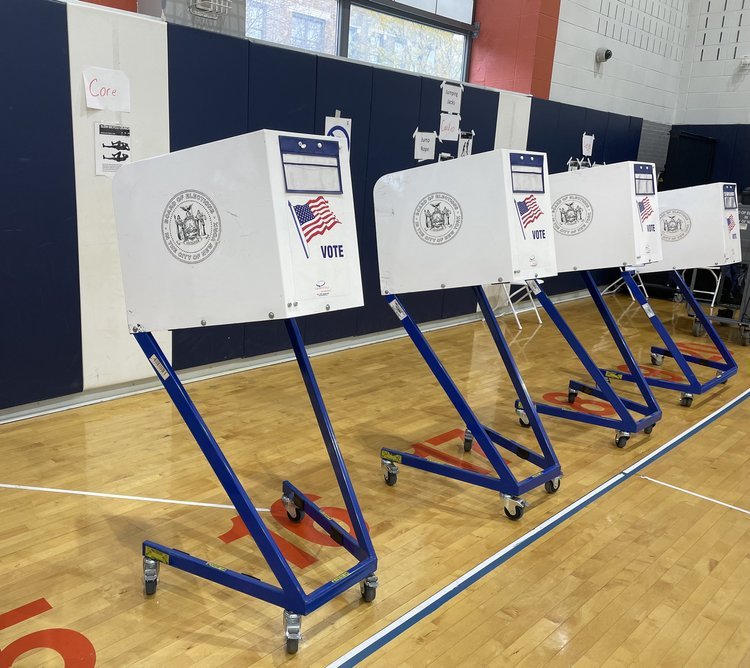Early voting, absentee ballot changes coming next year
/The newly signed bills will expand early voting access and expedite the counting of absentee ballots. Eagle file photo by Jacob Kaye
After two years of widespread early voting and mail-in ballots, Queens State Sen. Michael Gianaris pushed through two legislative measures to update codified voting practices.
The two bills intended to improve New York’s voting process by increasing the number of early voting sites and expediting absentee ballot counts were signed into law last week by Gov. Kathy Hochul.
“To increase faith in our democracy, people should be able to vote more easily and know election results in a timely manner,” Gianaris said. “That includes ensuring voters do not wait on lengthy lines to vote early, and requiring absentee ballots to be counted more expeditiously.”
Under the new legislation, the Board of Elections will be required to designate one early voting site for every 30,000 registered voters in a given county.
There were 22 early voting sites for Queens’ nearly 1.2 million voters in the last election. The new law would require closer to 40. Though early voting lagged in Queens for the general election, nearly a quarter million of residents in the borough voted early in the 2020 presidential election.
In 2019, the first year early voting was available, there were 14 sites.
“At a time when the federal government is doing everything it can to disenfranchise voters, we are taking action to make it easier for New Yorkers to participate in the democratic process and crack down on corporate influences in our election,” former Gov. Andrew Cuomo said after the state legislature passed the initial amendment.
The second bill would amend election law to require absentee ballots to be canvassed earlier and would require the Board of Elections to have results by the end of Election Day.
Absentee ballots will now be opened within four days of being received by the BOE and sorted into categories based on validity, and those that are certified will be counted on Election Day. If a ballot has a “curable” defect, the voter will be notified and have an opportunity to correct the problem.
In New York City’s 2021 general election, where anyone who requested to vote absentee was able to, there were 91,764 ballots returned, according to the BOE.
“For too long New York suffered from low voter participation,” said New York Public Interest Research Group Executive Director Blair Horner.
Alongside other recent voting protections, the newly passed bills “have bolstered the state's democracy,” Horner added.




